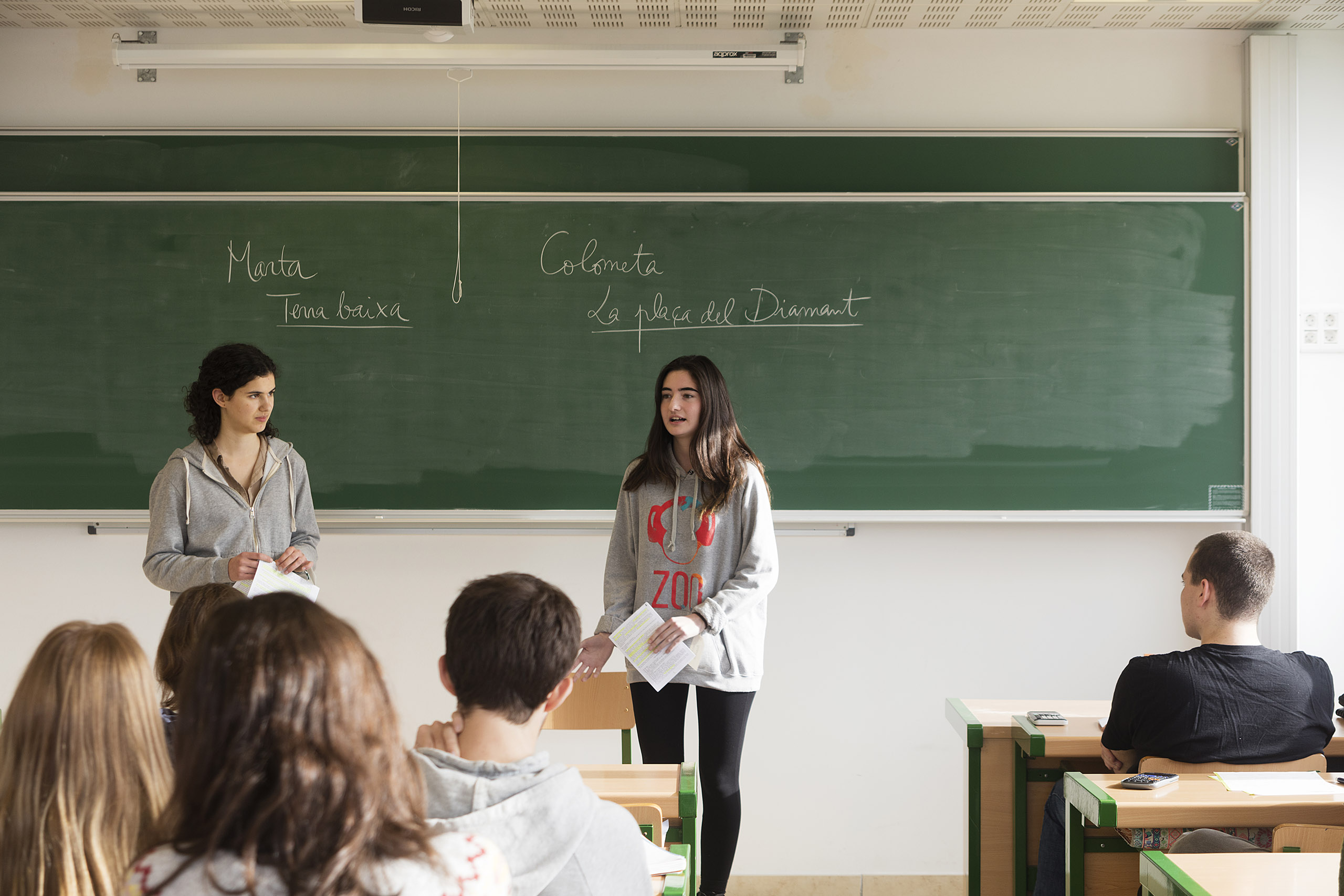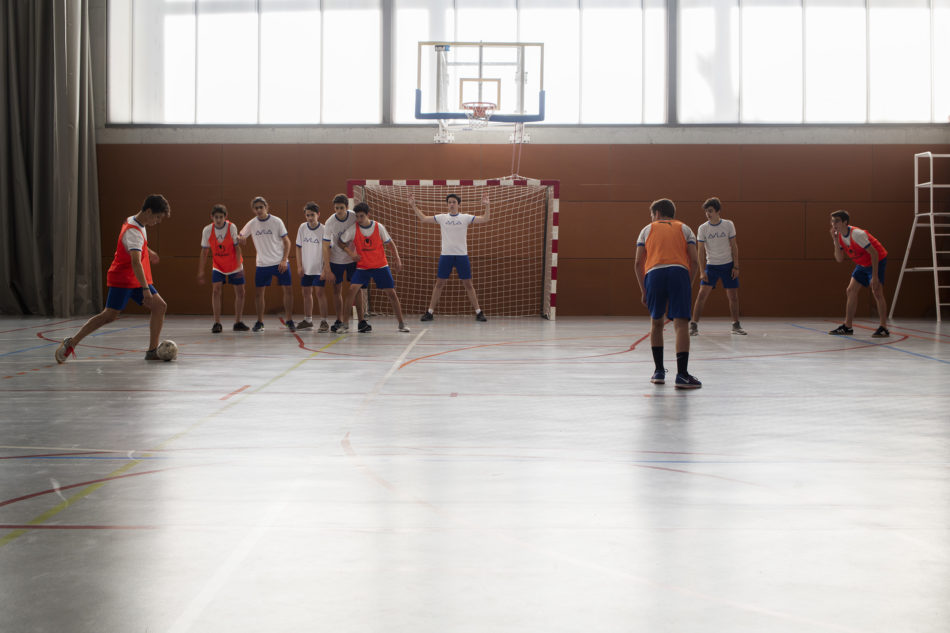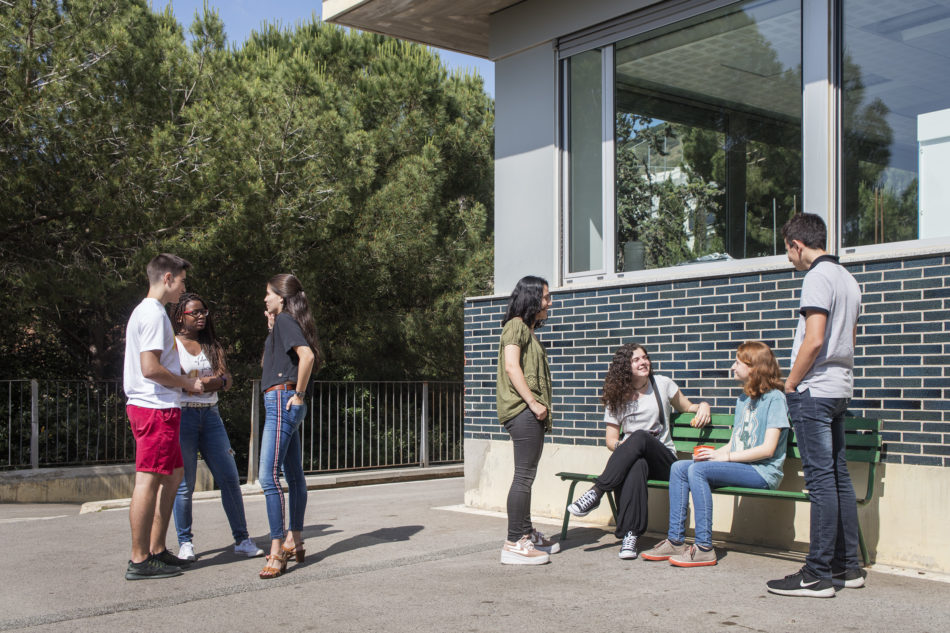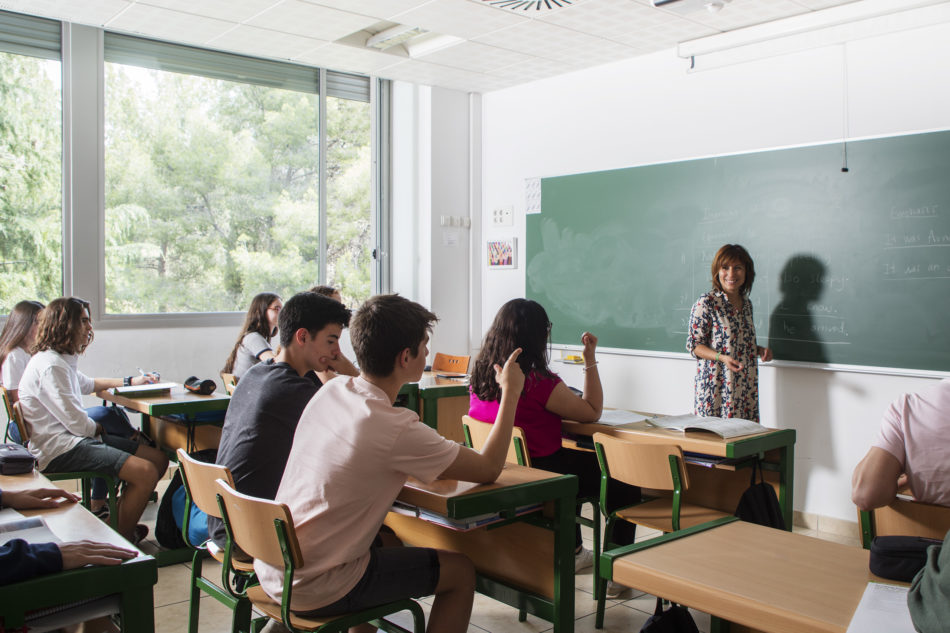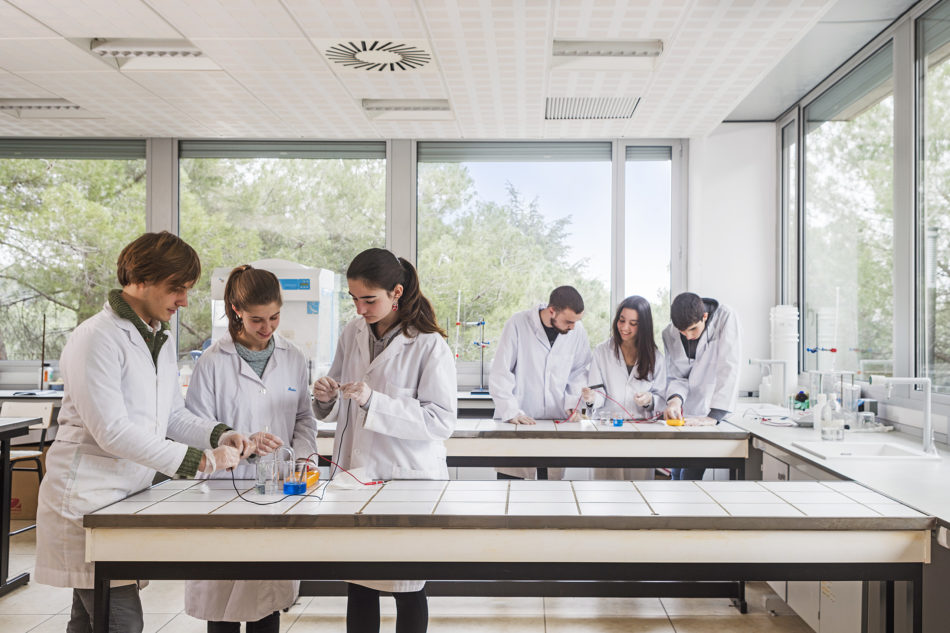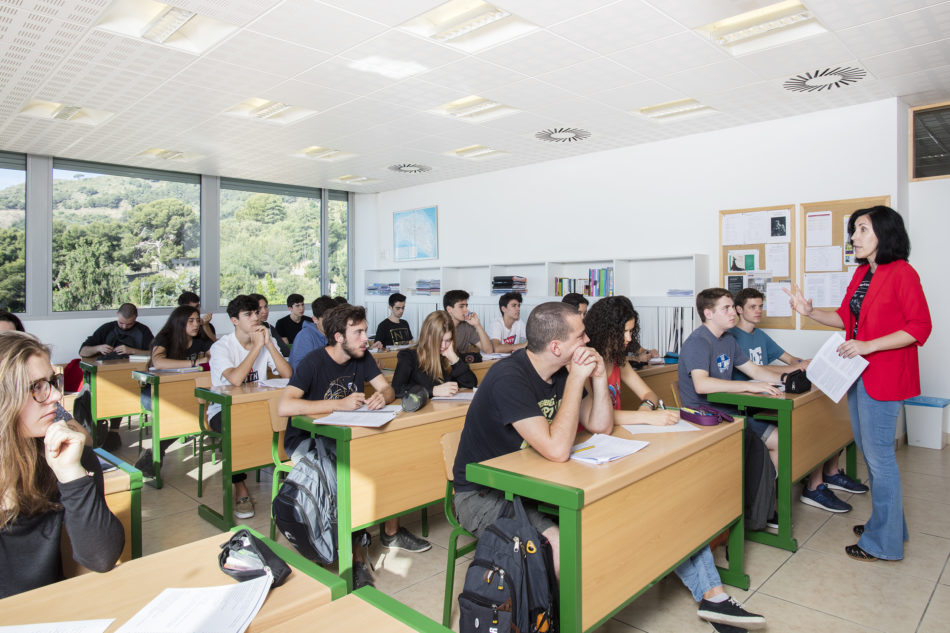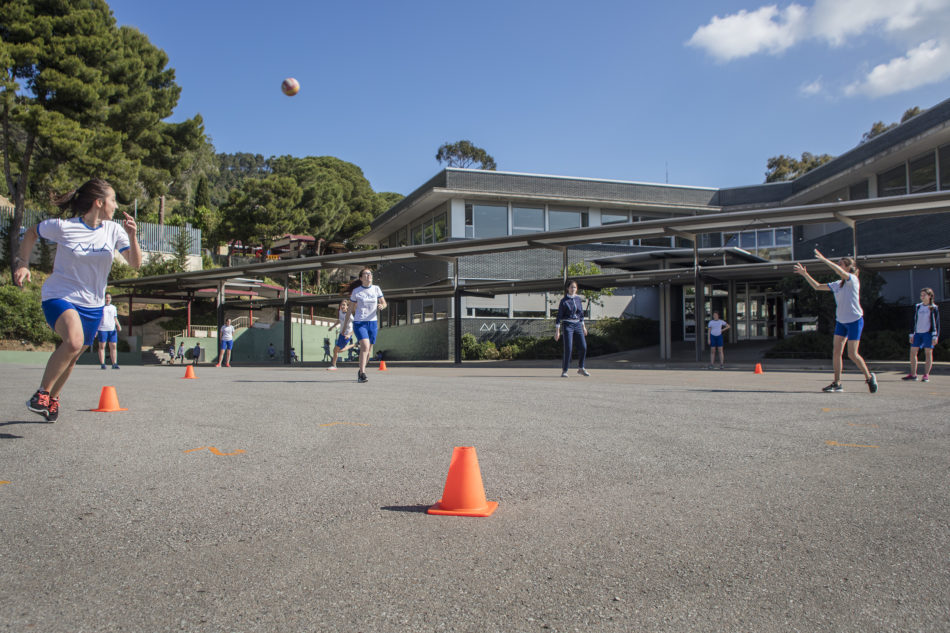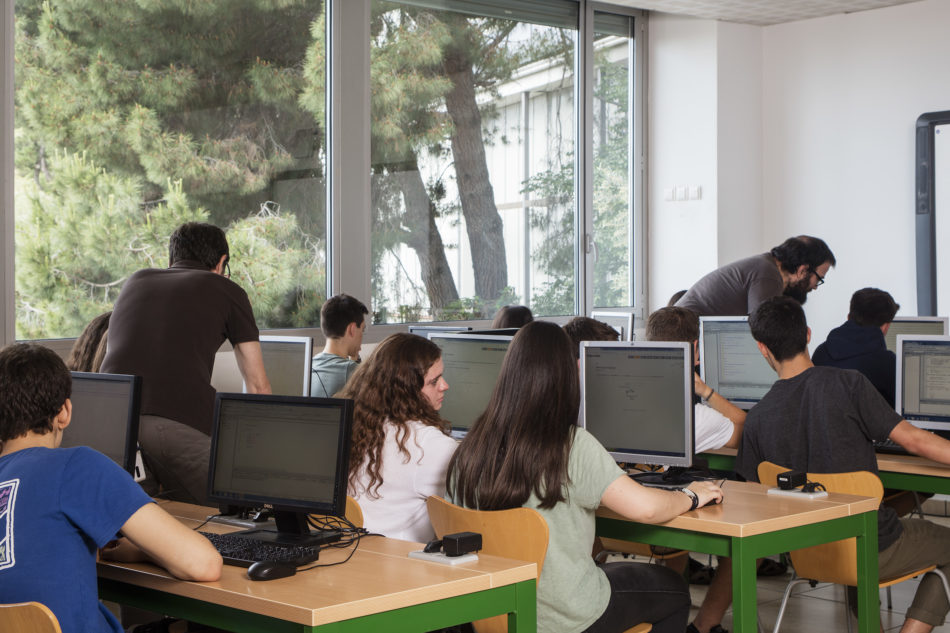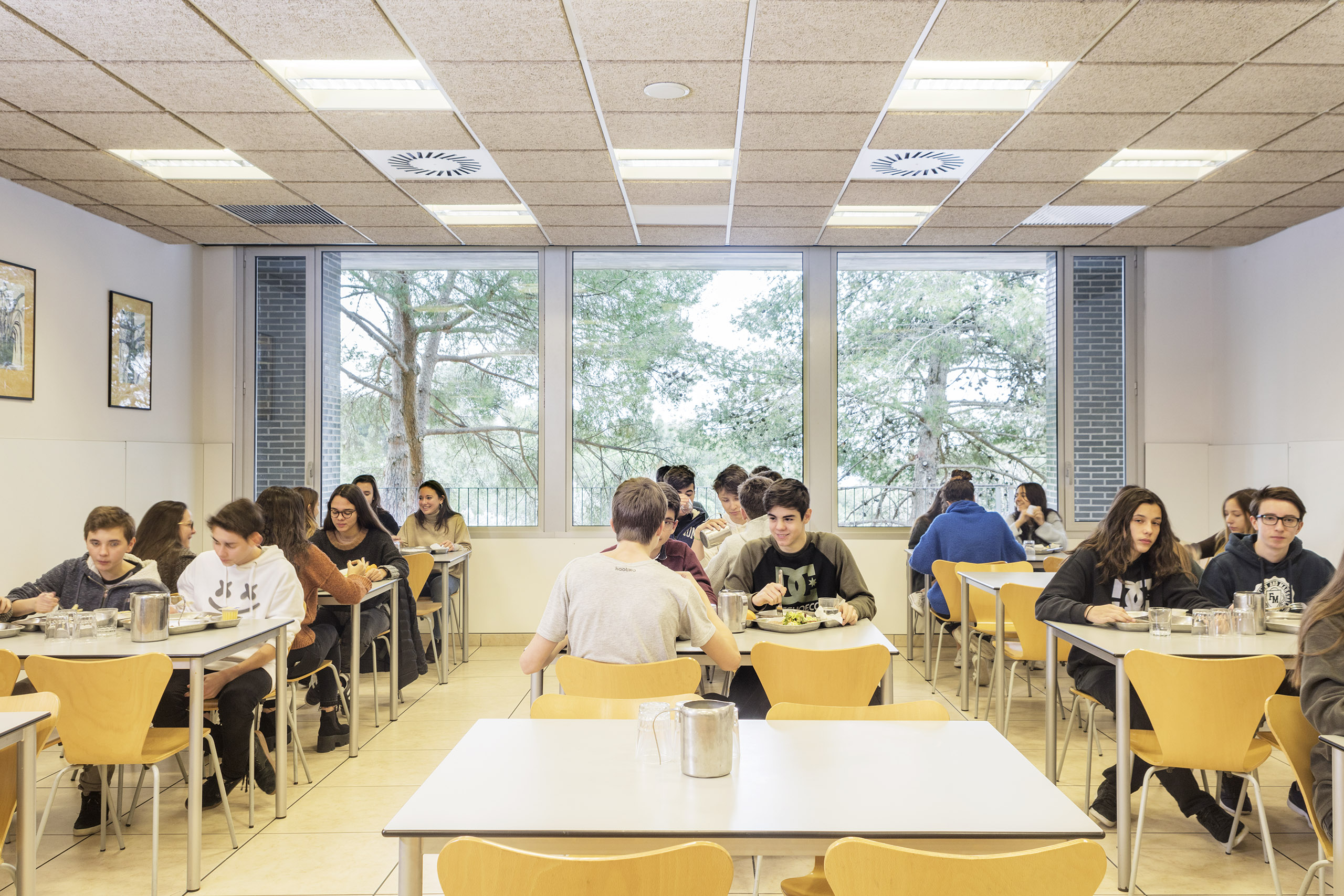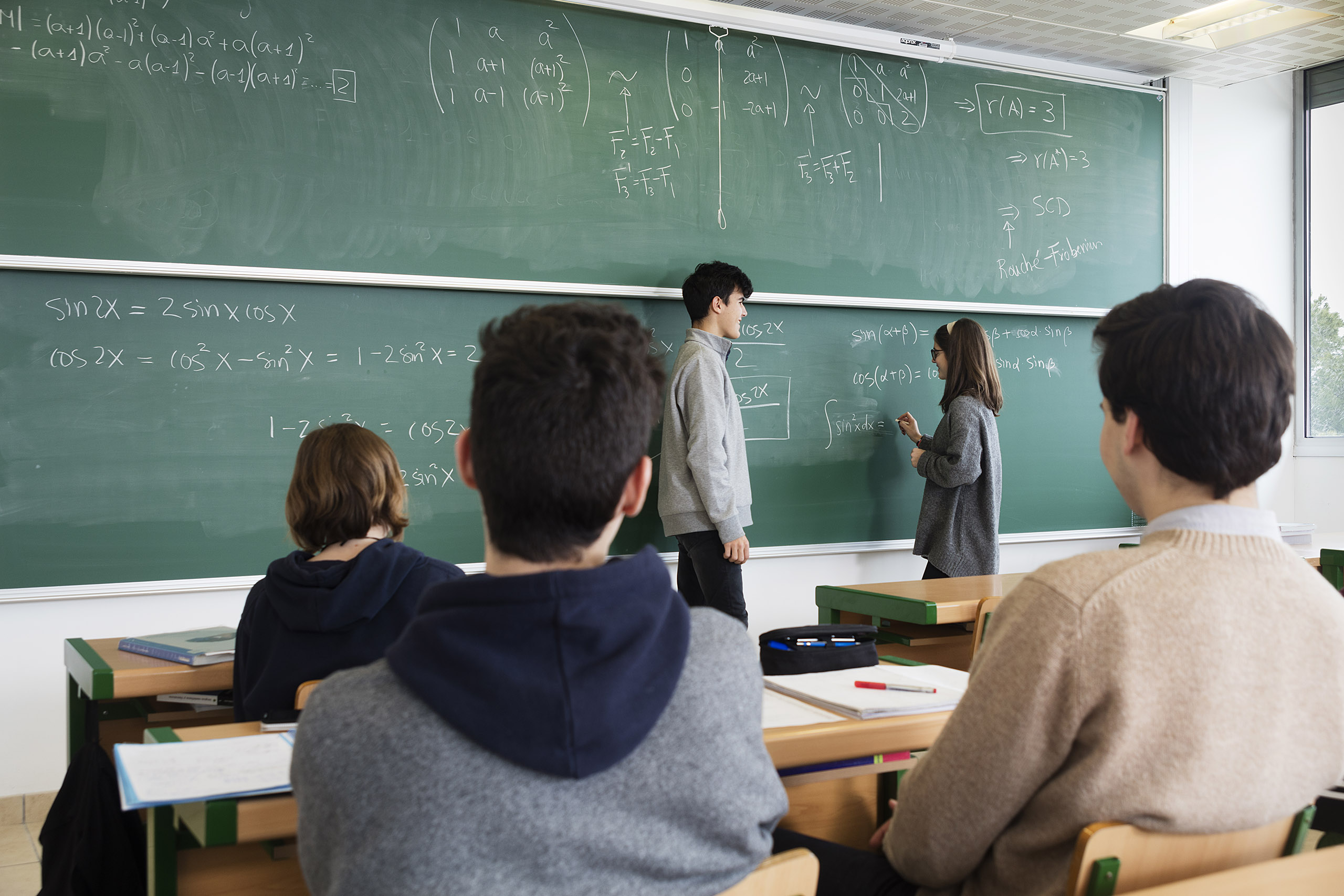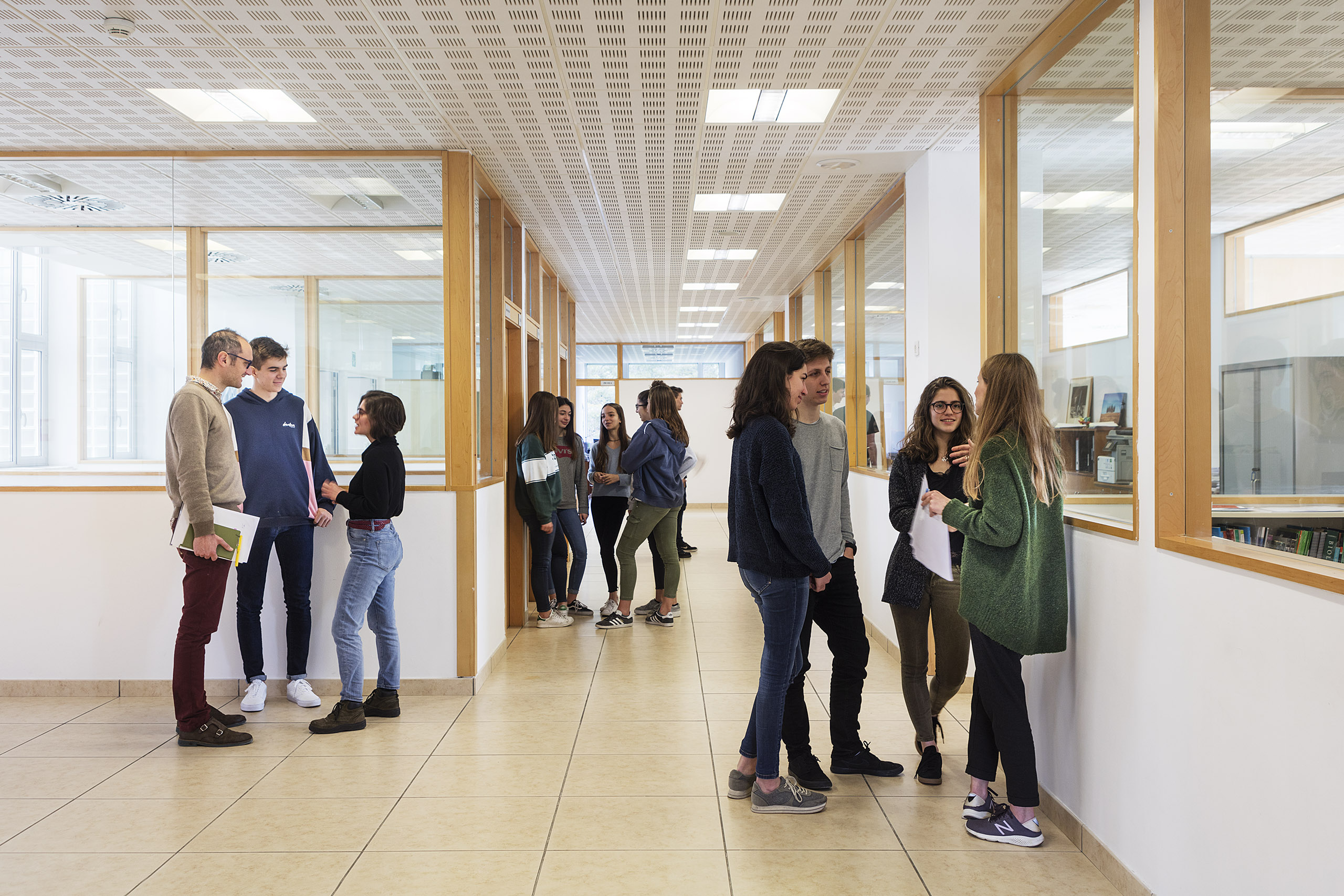Class start and end times are as follows:
Monday, Tuesday, Thursday and Friday: from 8.00h to 17.10h, depending on the subjects chosen.
Wednesday: from 8.00h to 12.45h, depending on the subjects chosen.
Baccalaureate students have a special coach service available to them that departs from Plaça de Sants, stops in Reina Elisenda and arrives at school at 7:55 am.
Baccalaureate students must bring the following:
During baccalaureate, students will immerse themselves in reading timeless classics in the school’s 4 vehicular languages.
Every year, in addition to the appropriate textbooks, we work on a carefully selected set of books that enable the students to gain an in-depth knowledge of the key works of world literature and enjoy the pleasure of deep reading.
The list of textbooks and required reading for each of the baccalaureate courses and specialisations can be found here.
If you have any questions regarding textbooks you can write to us at: [email protected].
The school offers a service for reserving and subsequently delivering (to the school) the textbooks. It will be available soon.
In addition, books, magazines and newspapers in all four of the school’s vehicular languages are available in the media library.
Students go on a large number of outings to reinforce the work done in the classroom.
During baccalaureate we go on cultural outings to the theatre and concerts, visit exhibitions and museums, and attend lectures, debates and seminars. We also organize outings to top-level scientific institutions.
Thanks to these outings, students gain autonomy, exercise their sense of responsibility and discover the meaning of hard work and going above and beyond.
In addition, baccalaureate students have the opportunity to go on a cultural field trip (in the first year) and to visit a European capital (in the second year).
Throughout the baccalaureate several activities provide guidance to students regarding their university and career path.
Trips are an important part of the educational project because we want to provide a new perspective on the places we visit: the perspective and experience of a traveller, which is very different to that of a tourist.
The trips that take place during baccalaureate are the culmination of all the field trips that the students have gone on during their primary and secondary education. We want them to experience the value of seeing new realities and the personal growth that comes with travelling.
In the first year of baccalaureate, students travel to a city in Spain, this last year the destination was Madrid.
In the second year of baccalaureate, students explore the culture and history of European capitals.
The teachers do not simply act as guides but rather they accompany the students during the preparation and through the course of the trip, helping to emphasize the value of activities such as visits to sights— which the students themselves prepare and explain to their fellow classmates—, readings of texts in relevant locations, opportunities for conversation, moments of quiet etc.
The International Baccalaureate aims to educate young people in solidarity, to become informed and hungry for knowledge, capable of contributing to creating a better world.
The baccalaureate at Aula combines the requirements of the Department of Education of the Government of Catalonia and those of the International Baccalaureate.
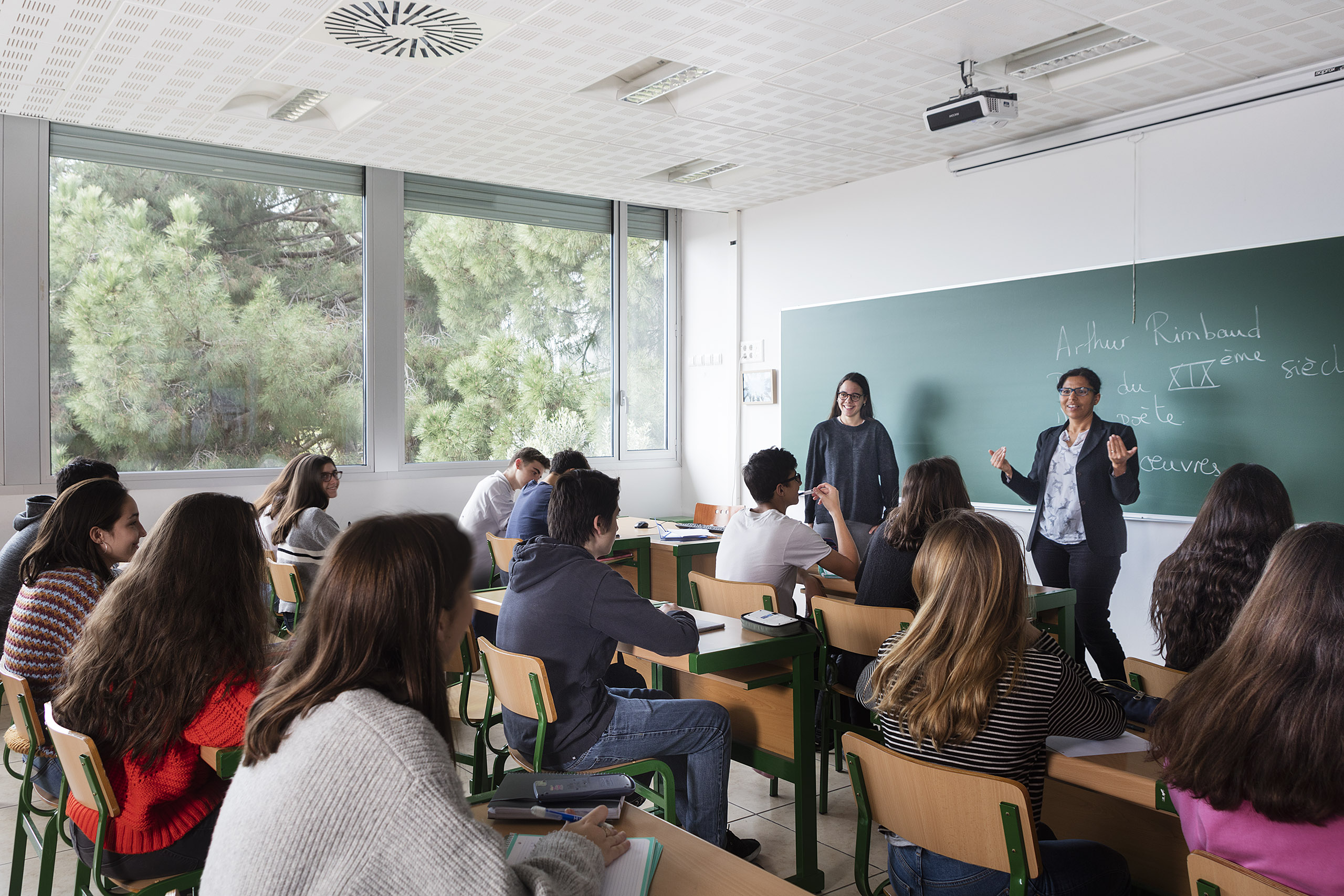
The International Baccalaureate organization is an international non-profit educational foundation created in 1968 in Switzerland. Its aim is to create knowledgeable students, with inquiring minds, as well as being empathetic and sensitive to the needs of others, with special emphasis on developing an intercultural understanding and an open mind.
Thanks to the baccalaureate combination of that Aula offers, students have a comprehensive and varied education, which combines local and international perspectives. The accreditation offered by the International Baccalaureate diploma provides access to many universities around the world.
Below is a list of universities attended by our former students: MIT, University of Abu Dhabi, Yale, NYU, University of Chicago, Princeton University, University of Amsterdam, Università di Bologna, École supérieure de chimie physique écetronique de Lyon, University of Warwick, University of Westminster, London School of Economics, Essex University, among others.
In the 2020-2021 academic year, we will be offering in Aula the double degree of National Baccalaureate and Baccalauréat (Bachibac), internationally recognized. Students may attend, as well as subjects in Catalan, Spanish and English, a third of their training in French.
Aula Escola Europea and the francophone culture
Aula Escola Europea was founded in the academic year 1968-1969 when the pedagogue Pere Ribera, director of the Spanish section of the French Liceu, decided to create a school at the service of the country, with a clear heuristic orientation, enhancing learning through the discovery, logical reasoning, reflection and critical thinking.
One of the pillars of the school is multilingualism and our students, since they are 3 years old, are introduced fromtheir native languages (Catalan and Spanish) into the French and English languages.
Bachibac
Bachibac allows students to pursue a mixed program that involves completing one third of their school hours in French, studying French language and literature, and the history of France. To enroll, students must demonstrate a knowledge of French equivalent to level B1. In addition to getting their baccalaureate students who are enrolled in the mixed program will also receive a baccalaureate diploma if they pass an external test exclusively in French. We are also considering an exchange with a Bachibac school in France and the Research Project in French. Students enrolled in Bachibac can take English as a subject if they wish.
Students with a Bachibac diploma can access the french university space under the same conditions as students in this country.
A close relationship between students, school and families is fundamental for guaranteeing the proper development of each student.
You can contact the baccalaureate department to discuss the progress of your child or any other day-to-day issues, either by email or by calling 93 203 03 54. Here are the main contacts at your disposal:
You can also send us written notes which can be delivered by your child.
